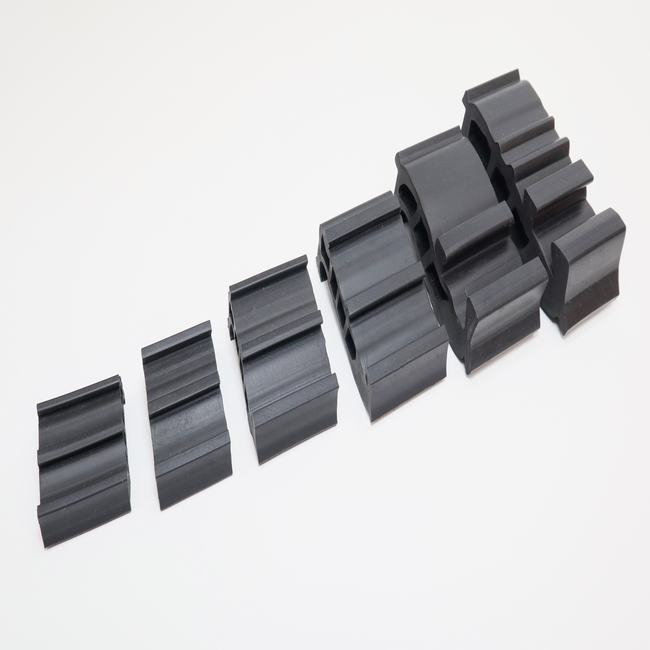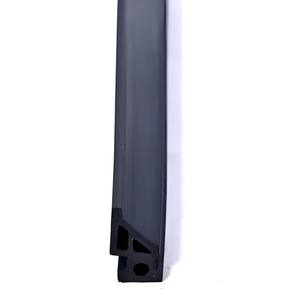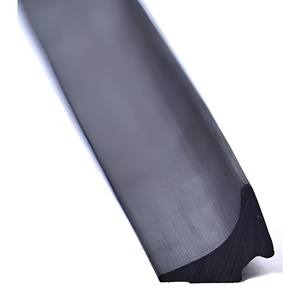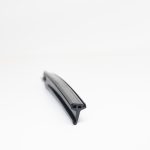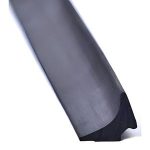Concrete pipe seals, also known as concrete pipe gaskets or concrete pipe joints, are essential components used in the construction and maintenance of concrete pipe systems. These seals are designed to create watertight and secure connections between individual concrete pipes in sewer, stormwater, and drainage systems, as well as in other underground utility applications. Here’s more information about concrete pipe seals:
Types of Concrete Pipe Seals:
- Flexible Rubber Gaskets: These are the most common type of concrete pipe seals. They are typically made from elastomeric materials like rubber or synthetic rubber compounds. Flexible rubber gaskets are designed to create a tight seal between adjacent concrete pipe sections.
- Mastic Seals: Mastic seals consist of a flexible, adhesive material that is applied to the joint between concrete pipes. Once in place, the mastic material creates a seal by filling any gaps or irregularities in the joint.
- Mechanical Joints: Some concrete pipe systems use mechanical joints that incorporate sealing elements like rubber gaskets or O-rings. These joints are designed to be assembled with specific torque or pressure to ensure a secure seal.
Functions and Benefits:
Concrete pipe seals serve several crucial functions and offer various benefits:
- Watertight Seal: The primary function of concrete pipe seals is to create a watertight connection between pipe sections. This prevents the infiltration of groundwater and the exfiltration of sewage or wastewater.
- Preventing Soil Erosion: By maintaining a secure and sealed connection between pipes, these seals help prevent soil erosion around and beneath the pipes, ensuring the stability of underground infrastructure.
- Chemical Resistance: Depending on the application, concrete pipe seals can be designed to resist exposure to chemicals and corrosive substances commonly found in sewer and drainage systems.
- Easy Installation: Concrete pipe seals are relatively easy to install, helping to reduce labor costs and installation time during construction or maintenance projects.
- Longevity: When properly installed and maintained, concrete pipe seals have a long service life, contributing to the durability and reliability of the overall pipe system.
Applications:
Concrete pipe seals are used in a variety of applications, including:
- Sewer Systems: Concrete pipes are commonly used for sewer lines, and concrete pipe seals ensure tight connections to prevent leaks and contamination.
- Stormwater Drainage: In stormwater drainage systems, concrete pipe seals help manage excess rainwater, preventing flooding and erosion.
- Utility Tunnels: Concrete pipes are also used in utility tunnels and underground infrastructure, where reliable seals are essential for the protection of utility lines.
- Industrial Facilities: In industrial settings, concrete pipes and seals are used to transport various liquids and materials.
Maintenance:
Maintenance of concrete pipe seals primarily involves regular inspections to check for signs of wear, damage, or deterioration. Damaged or worn seals should be replaced promptly to maintain the integrity of the pipe system. Proper installation and adherence to manufacturer guidelines are critical to ensure a secure and lasting seal.
In conclusion, concrete pipe seals are critical components in the construction and maintenance of concrete pipe systems used in various underground and utility applications. Their primary function is to create watertight and secure connections between concrete pipe sections, preventing leaks, soil erosion, and groundwater infiltration. Regular inspection and replacement, when necessary, are key to ensuring the long-term performance of these seals in underground infrastructure.
